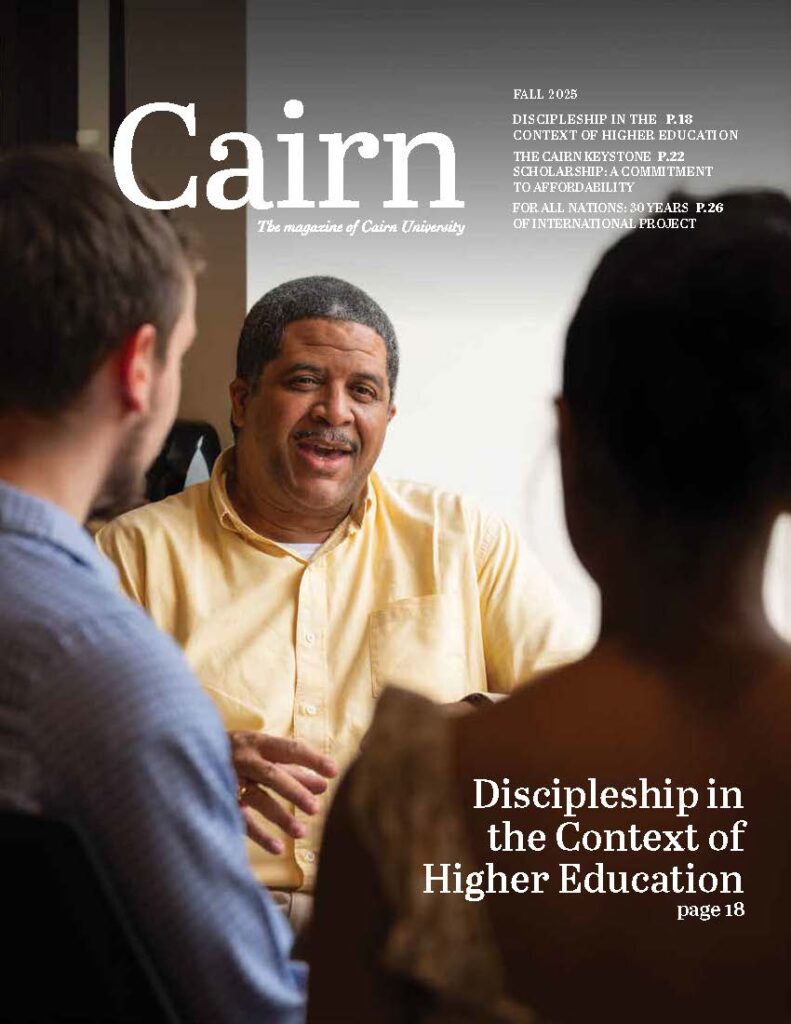One of my son’s favorite authors growing up was Richard Scarry. He knew exactly where in the library Busy Workers and Going Places were located. Our own copies were stashed in his crib and then bed for years. Of all of the characters, Mr. Frumble was always the most fun to find on the pages. Mr. Frumble, you see, walked all over Busytown with his head buried in the newspaper and, because of this, ended up in the strangest of places. I do not think it would be a stretch to say if Scarry was writing and illustrating today, Mr. Frumble would be holding a device (smart phone, most likely) rather than a newspaper and, perhaps the most scary thought, he would not stand out. In fact, there may be a whole lot of Mr. Frumbles in a not-so-busy, not-so-friendly, Busytown.
We are now in a culture where someone reading a book while waiting, or eating dinner alone, is noticed. What is not noticed is a group of people sitting around the table, or in a self-driving car, all on their own devices. How did we get here, does it matter and, if it matters, what are we to do? These are questions I have been asking myself for some time as I manage a library collection with 150,000 physical books and well over 3,000,000 digital items and as I am in the midst of raising two children to know and love God above all else.
I suppose no one is surprised that a librarian was asked to write an article about the importance of reading—it is, after all, my livelihood. However, you might be surprised to learn that in the numerous library conferences and conversations I have with fellow academic librarians, I rarely find myself discussing the significance of reading or the library as a sanctuary. Perhaps it is because these ideas are pre-supposed or our focus has shifted to faster, better, more entertainment-based services.
Where We Are & How We Got Here
In her 2018 book, Reader, Come Home, Maryanne Wolf, a neuroscientist, described a seven-year span where she spent time working on language acquisition. She observes, “In the seven years it had taken me to describe how the brain had learned to read over its close to six-thousand-year-history, our entire literacy-based culture had begun its transformation into a very different, digitally based culture.”1 In the following letters to her reader, she chronicles how this digitally based culture has changed the brains of even the most literate of people. Though Wolf is correct in that something has changed, she is too near-sighted.
Robert MacNeil’s 1983 article asked, “Is Television Shortening Our Attention Spans?” and was followed, two years later, by Neil Postman’s insightful Amusing Ourselves to Death: Public Discourse in the Age of Show Business. Postman details a much more gradual shift from a typographic society to a telegraphic then photographic to purely visual (digital could be interchanged here) society with the invention, and wholesale acceptance, of television. For the telegraph, presented to congress in 1838, Postman explains, “is suited only to the flashing of messages, each to be quickly replaced by a more up-to-date message. Facts push other facts into and then out of consciousness at speeds that neither permit nor require evaluation.”2
So started the shift from the typographic society that was capable of deep thought linked to the Great Awakening and the Lincoln-Douglas Debates of the 1850s. In 1854, one such debate was a three-hour address by Douglas, three-hour Lincoln response, and finished with a one-hour rebuttal. Dinner, suggested by Lincoln, was in between the two speakers. Reports talk of an engaged crowd throughout; this typographic society exemplifies that “to engage with the written word means to follow a line of thought, which requires considerable powers of classifying, inference-making, and reasoning.”3 Or, though Jonathan Edwards’ sermons (heard and read) awakened the emotions of many, “they were first and foremost, required to understand it.”4 Writing a book takes time; reading a book takes time. It requires focus and attention. What happens when we are no longer challenged to focus? Wolf continues this thought, focusing on the expert reader rather than all of society, asking, “Will the quality of our attention change as we read on mediums that advantage immediacy, dart-quick task switching, and continuous monitoring of distraction, as opposed to the more deliberate focusing of our attention?”5 Though Wolf is focusing on the effects of medium on expert readers, Postman is concerned for all of society because, once upon a time, all of society was capable of this deep reading.
Mediums and Our Children’s Minds
One of the most poignant concepts in Postman’s book, and picked up by Wolf, is the idea that the medium changes the message. Perhaps more frightening: the medium can change us. In the digital age we live in, it is not just fully formed minds occupied with this medium—it is our children’s minds. When we move from the book and when we read less and scroll more, we stop evaluating, discussing, and interacting. And it can be summed up in a blog post I stumbled upon: “6 Proven Video Best Practices to Capture Audiences’ 8-Second Attention Span on Social Media.” This title highlights the nature of the medium we’re so immersed in and allow our children to engage with:
1. It’s all about what the audience wants, not what they need.
2. Our attention span is less than that of a goldfish.
The second point is staggering and explains experiences like viewing the Crown jewels at the Tower of London while being passed through on a moving walkway. There’s no time to appreciate the design, beauty, or history of each piece before the next one is in front of you. We are going through life on a conveyor belt simply interested in the next byte and forgetting what came before.
How Then Shall We Respond?
As Christians, I believe we must counter this. We are called to “love the Lord your God with all your heart and with all your soul and with all your mind and with all your strength.” Moreover, we are told to abide with God. Or, as the psalmist urges: “Be still and know that I am God.” The Psalter Hymnal sings through this Psalm and though we all know v.10a, we tend to forget that three times in the 11 verses God is referred to as our refuge. God has chosen to reveal himself to us through Scripture. He has chastised, encouraged, and laid out his plan of salvation. He is our refuge. And, in all of this the significance of knowing God as he revealed himself to us is at the forefront of why we do what we do. If we cannot read well, we cannot read the Word well and we cannot know the Word well.
Most importantly, we cannot just tell our children (or us) to simply read and know God. Reading is a skill and discipline we must cultivate, or it will atrophy. We need to learn to read without distraction and with the expectation to learn. In a sermon by Alistair Begg, I was struck when he stopped and said, “Don’t skip over this phrase.” What Begg is saying, and the word I keep being confronted with throughout this season in my life is: linger. Here, I want to use what the Oxford English Dictionary calls an obsolete meaning of the word: “to dwell, abide, stay (in a place)” or the 1530s use of the word to “stay behind, tarry, loiter on one’s way; to stay or hang about in a place beyond the proper or usual time, esp. from a reluctance to leave it.”6
Read, Discuss, Learn, Know (Repeat)
When we take a child into our lap and read a book, we say we are willing to remove ourselves from our world and enter a different time and place with someone else. Lingering. We can be part of the mice helping the dear old Tailor of Gloucester or laughing at Dutchess trying desperately to find that patty pan. Or, perhaps we cry together over the ponies succumbing to the trolls (poor ponies) and later laugh at how Bilbo tricked that creature under the mountain. Finally, we can be reminded that the mercy of Bilbo in The Hobbit truly did change the fate of the world Middle Earth. More importantly, when we discuss and share these moments, we learn about context and how there is more to life than the here and now. And, even, what is happening in the here and now “is nothing new under the sun.”
We need to create a space and make time for this. We will be rushed along with current culture if we are unwilling to step aside and take a rest—a daily rest. And this is significant, because we are teaching children to think and process while focusing on a task. We are choosing a medium that encourages contemplation, “and a sophisticated ability to think conceptually, deductively and sequentially; a high valuation of reason and order; an abhorrence of contradiction; a large capacity for detachment and objectivity; and a tolerance for delayed response.”7 Dare to linger.
The medium we are spending our time on is designed to give us what we want so that we continue to swipe, scroll, or click. They say a banker knows counterfeit dollars not because the new banker spends time with the counterfeits but that he or she is trained in knowing the real money. So too, we must know the Truth to know what is false. We need to step away from this scrolling culture to be able to “uncover the lies, confusions, and overgeneralizations, to detect abuses of logic and common sense.”8 We linger to know and in knowing we act. The digital medium does not expect us to linger, and I believe we are the poorer that we fail to linger—that I fail to linger.
As I reflect on Richard Scarry’s Mr. Frumble, I am not certain he was just meant as comic relief but as a lesson on what happens when we fail to see the world around us. Three decades before Scarry wrote, a group of some now famous, some long forgotten, men (and sometimes women) met in Oxford. The Inklings met for nearly 20 years—they shared their own work, laughed, and lived amongst each other. They pursued beauty through literature together. Let us put down our devices and turn off our “televisions.” How much would be lost without the ability to read? And how much have we lost because we do not read without distraction, nor take the time to connect the dots, see connections, and linger over the words. And moreover, may it teach us to read the Bible with the anticipation to know God. What a gift! Let us not lose out! Get reading.
10 Helpful Tips to Get Reading
It is not easy to get started. But small goals make this possible.
- Be patient and kind. This is hard work. It can be discouraging work at times, but it is worth it. Do short trips to start. For those of us not with small children: Be patient and kind when a parent/adult is struggling with a child but not giving in to the temptation to shove a screen in front of him/her.
- Use your local library to find new adventures, “check-out” the audiobook and the corresponding print book to read along and engage in the car or naptime. The Royal Shakespeare’s Chronicles of Narnia taught our daughter to read.
- It is never too early (or late) to start. Board books, cloth books, books of all sizes. Keep books in cribs, keep them in cars, bags, and everywhere else. Going on vacation and your child comes out with a massive suitcase full of books for one week? Make the space!
- Gift books. Christmas gifts. Shower gifts. “Just because” gifts. One of my favorite gift ideas was when each attendee gave us a book to start building our library. Some of those stories remain our favorites. Grandparent (or aunts, uncles, friends)? You are never too far away to send books. If you are at a distance, buy two copies and schedule Facetime or Zoom to read aloud and discuss.
- Find space: for bookshelves and for reading. A spot and/or specific time each day committed to uninterrupted reading. Do not underestimate the importance of giving children a place to keep books and shepherd them into caring for their collection.
- Read books aloud and be silly. When we moved to our farmhouse, our daughter put out a plate with “butter” and a rolling pin just in case Samuel and Anna Maria Whiskers needed to make Roly-Poly Pudding. Tom Kitten was not around, thank goodness!
- Expect more from schools. Support the teachers who share suggestions and encourage your children to spread their wings. To us, such teachers have become our forever friends. Challenge all of the technology: It took a lot of work, but we found a middle school and then high school that gives the physical texts to the students and teaches each student to annotate their copy. These are their books forever.
- Read what your children are reading and go somewhere special to discuss it.
- Have a literacy fund to cover fun trips to the thrift shop, used book store, or Barnes & Noble. This literacy fund also covers the borrowed books that may have been left outside or spilled upon and even replacing your worn-out favorites or books that found their demise during nap time.
- Read the Bible as a family (really #1) For younger children, being part of reading the Word of God is priceless. The Jesus Storybook Bible is fantastic but do not underestimate the importance of reading from a Bible. Find a translation that reads well—ESV, NRSV, NKJV—and read.
- Wolf, Reader, Come Home, 6. ↩︎
- Postman, Amusing Ourselves to Death, 70. ↩︎
- Ibid, 51. ↩︎
- Ibid, 54. ↩︎
- Wolf, 39. ↩︎
- Oxford English Dictionary, s.v. “linger (v.),” March 2024, https://doi.org/10.1093/OED/9408004489. ↩︎
- Postman, 51. ↩︎
- Ibid. ↩︎
This article was originally published in the Fall 2024 issue of Cairn Magazine.










